Former DC publisher Dan DiDio on the highs and lows of his 18 year run
Dan DiDio is a fanboy who got to live the dream
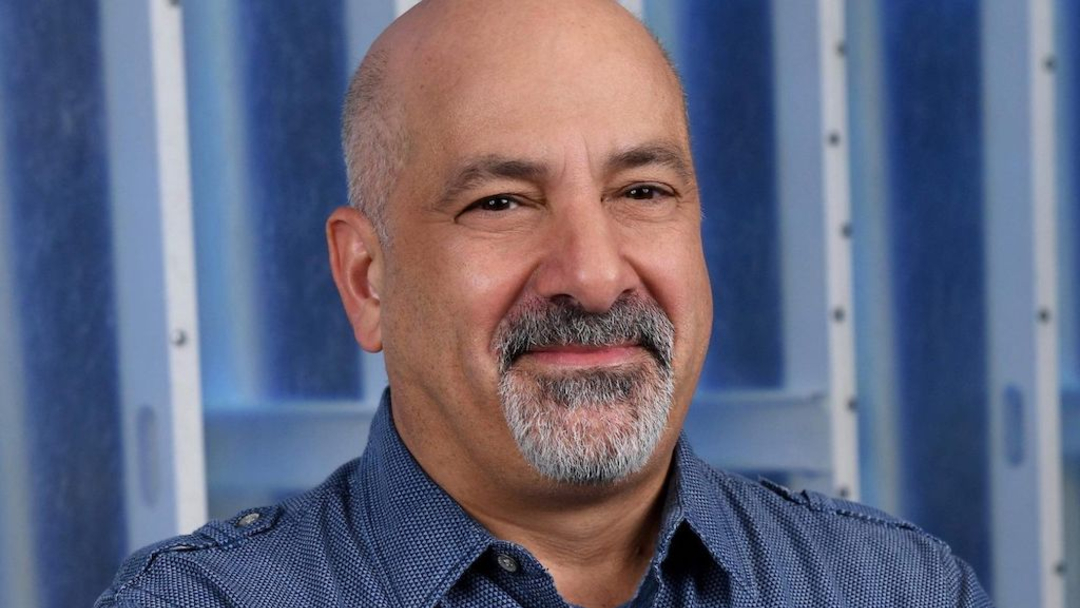
Dan DiDio is a lifelong comic fan who landed in TV in the '80s, eventually becoming a programming executive, and later senior VP of creative affairs at Mainframe Entertainment, an animation studio. DiDio befriended many comic creators, and helped several cross-pollinate their work into animation.
In 2002, by then co-writing the Superboy comic with Jimmy Palmiotti, DiDio got a call from DC Comics. The venerable publisher was looking to change some things up and restructure internally. They brought DiDio in as VP — editorial.
DiDio spent 18 years at DC — although he almost quit on at least three occasions. In any tenure of that length, highs and lows are to be expected, and were realized. DC launched revolutionary year-long weekly series, and totally revamped and rebranded its line several times. When things went well, fans tended to laud the creators. When they went poorly…well, no one likes the suit. DiDio usually took the brunt of fan blame.
On February 21, 2020, DiDio finally left the company. In fact, "Dan DiDio has left the company" were the exact and specific words used by remaining company executives to explain his departure to the remaining staff. Also in fact, there’s no way to look at it other than DiDio was fired. Early in the morning of Feb. 21, DiDio was on the phone with multiple DC talent, having creative conversations and planning the future.
For contractual reasons, DiDio cannot discuss the specific circumstances of his departure. But all else is fair game in his first print interview (in three parts) since that departure.
Newsarama: Dan, you were at DC for 18 years in a VP or higher capacity — that's almost one third of your life. Now that you've had at least a little time to turn around and look back, did it fly by? Does 18 years "feel" about right? Do you have some perspective on the whole thing?
Dan DiDio: It was the fastest eternity I've ever had [laughs]. Things always felt like they were moving incredibly fast. There was a point where I forgot what I did before I joined DC, to be perfectly honest. It was so all-consuming and so much a part of my life, because it wasn't just a job for me, it was my hobby since I was 10 years old.
Get the best comic news, insights, opinions, analysis and more!
Comics were something that I'd always read, enjoyed, and aspired to be part of. I found ways to be part of comics through alternate methods, whether doing fanzine material or a little writing on the side, or helping other people with their books or characters, or even hiring talent from comics to work for me when I was working in animation.
I always felt I always had comics in my life. Therefore, my time at DC is part of that. While it may be a third of my life there, it feels like it's almost my entire life.
Nrama: David Schwimmer once said in an interview that he hopes history will remember him as something more than just Ross from Friends. Good luck with that, buddy. But for you, after 18 years there, are you going to be the DC guy for all eternity? Have you painted yourself into a David Schwimmer corner?
DiDio: You know, I'd be more amazed if I get remembered at all [laughs]. I mean, you have to be honest about these things, and know that when you step into a job like this, you're a renter. You don't own it. I never wanted the job to define me, nor did I want to define the job. I wanted to do the best job that I could for as long as I could.
Therefore, if the world forgets about you the day after you leave, or they change everything that you did, all you can remember is you had a great time while you were there. It was a great trip. It’s like that slideshow for that European vacation you took with your parents back in the ’60s or something [laughs].
Nrama: When you came into the company, it was 2002. That’s a long time ago, but as best you can remember, what did it look like on day one? What did you think you were inheriting, and what did you see as your main challenges for as long as you were renting?
DiDio: My main challenge, personally, was learning publishing. My background was 20-plus years of television.
I knew of the comic business, I knew the people in the business, and I knew the characters just through my own desire to be well versed in comics because I found it interesting. But to be actually participating in it and meeting the people that you read about through the years and trying to navigate all the relationships and situations that were established there at DC was daunting.
I think I've mentioned this story before, but it's worth repeating. I thought I was going to leave after the first year. It was extraordinarily frustrating. It was a lot to learn.
As a matter of fact, what was interesting was that while I was there in that first year, Warner wanted to start up some level of animation within DC, and I kept on asking to be involved in that. [Then-DC president] Paul Levitz kept on pushing me back into publishing, saying, "You're here to learn publishing, not to do what you did before." It frustrated me at the time, but in reality, it was one of the best things for me, because it made me dig in, roll up my sleeves, and learn about the company and learn about the processes. Paul gave me a lot of time to learn; a lot of leeway.
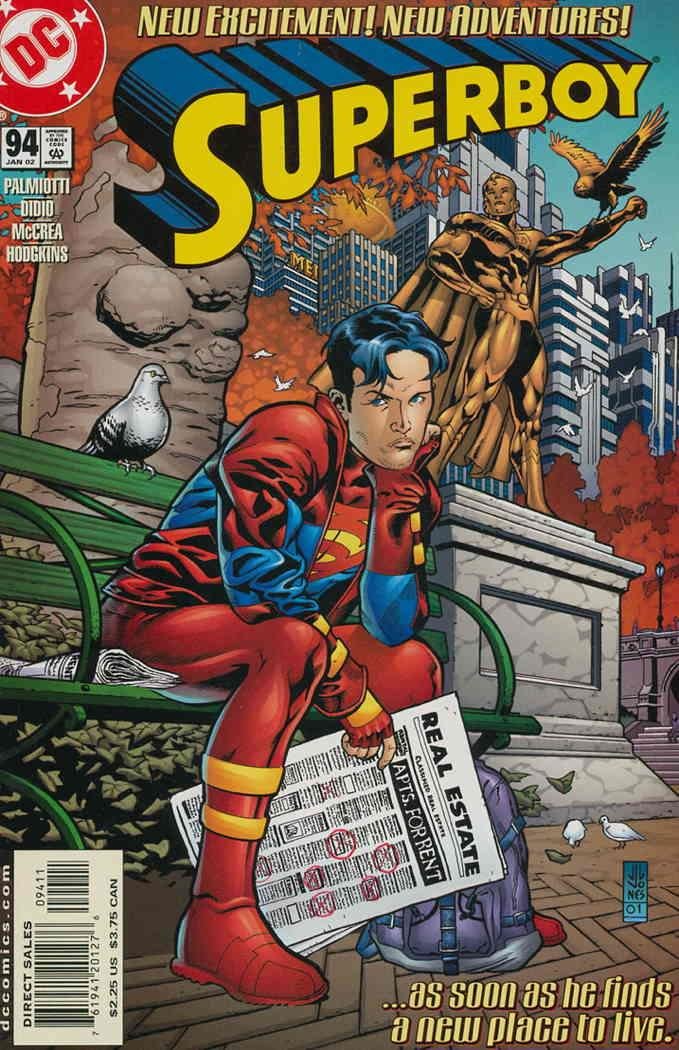
My first position was VP of editorial. That job was really rather ambiguous. It could be a confrontational situation, since nobody knew why I was there. Some people thought I was installed by Warner Bros. Some people thought I was there because [laughs] I was co-writing Superboy. I don't know how that works! But the reality was, nobody really knew what my role was. So I became a little bit of an ombudsman, trying to find ways to help people along and help projects along, or try to find ways for people to work better together.
Nrama: This may be a minor point, but an important one. Shortly after you entered the company as a VP of editorial, Superboy was cancelled, right? Was that your decision? Did you put your thumb on the scale to cancel your own book?
DiDio: My first official act at DC was to cancel Superboy. That was my first decision.
Nrama: How did you break it to yourself? [laughs]
DiDio: I was disappointed. [laughs] I didn't understand the logic and I hated that new guy coming in and making these choices. [laughs] No, I knew what the sales were, I knew what would happen. It made sense to cancel it, so I had to make it make sense, you understand?
So back to the first year, what I did is I spent a lot of time learning the systems and learning how it works. By the end of my first year, I was tired. I was frustrated. I wanted to get back to TV, get back to something I knew that I felt comfortable in. So I presented to Paul what I called a little bit of a manifesto. "Based upon all my time here, this is what I thought you could fix. This is what I think needs to be done. I think this is the way it could be restructured better. Here's all my suggestions. Good luck." It was, "Good luck with it. Here's all my recommendations."
Paul looked at me and he said, "Listen. I'll take all your recommendations with two changes." He made one tiny little change over here, and he goes, "The other change is, I'd like you to fill the executive editor spot." Now I didn’t want that. When I presented my manifesto, I wasn't in it. I was out. [laughs]
Nrama: So your "End of Year Manifesto" was also your exit plan.
DiDio: Right. I wasn’t on the org chart. At all. I wasn't on the chart. But then you have that moment when somebody offers you something you've always wanted your whole life but you never thought you'd ever get. It's overwhelming. It's daunting. It's humbling. It's exciting. It's scary. It's all these emotions all at the same time. To tell you the truth, I do not think I was qualified for that job, at least in comic book publishing terms, based upon what my predecessors’ qualifications had been in that role.
But it didn’t scare me off from it. As a matter of fact, that emboldened me to basically prove that I was going to be able to do something, even if people thought that I wasn't qualified for it.
But yeah, I've had a couple of exit plans at DC. There's about three or four times I thought I'd be out of there, to be honest with you.
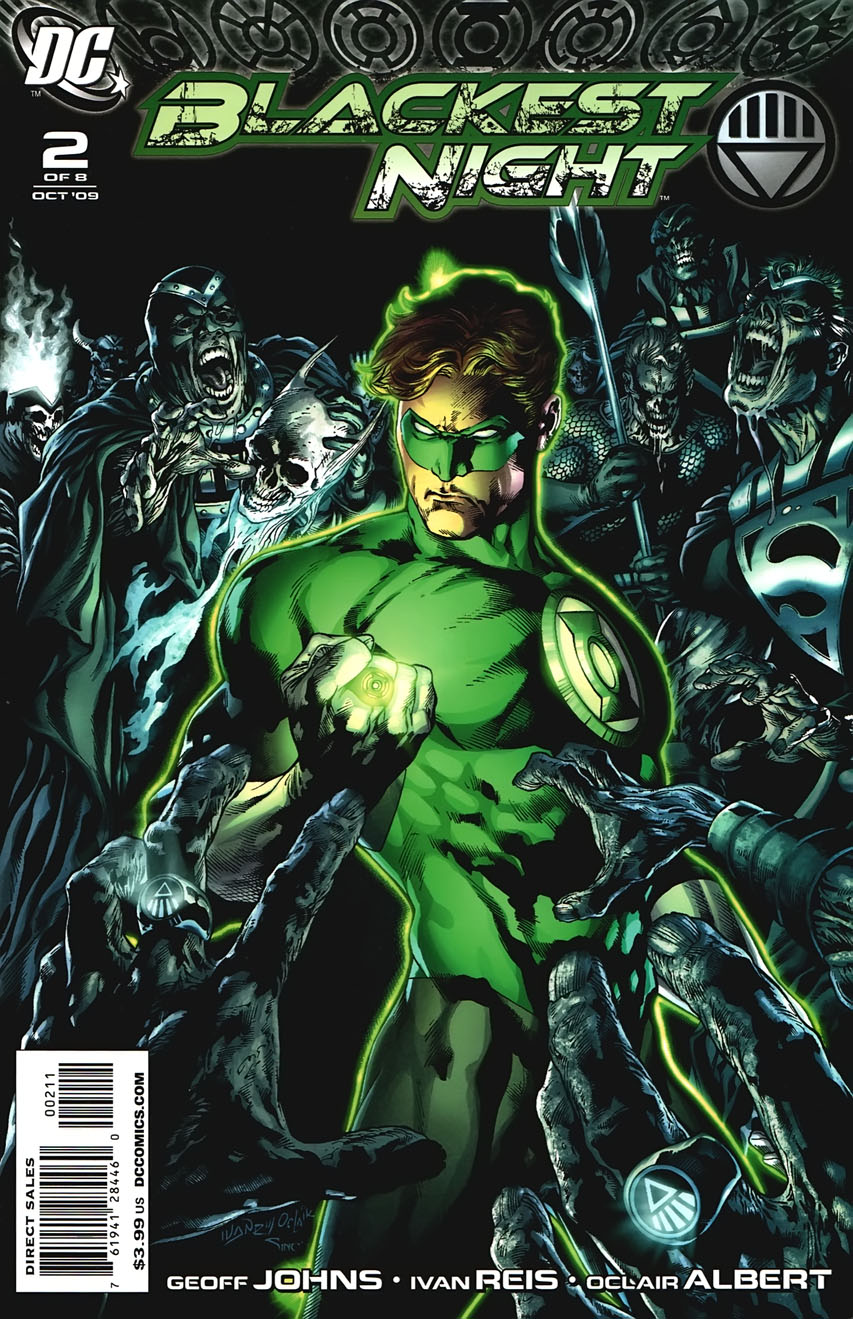
Nrama: What was another time?
DiDio: There was a point that was a low point in my personal and professional life, at the end of 2007 and beginning of 2008, when we finished Countdown and 52 and we were struggling with other ideas. I felt that I was trying harder and accomplishing less. I had this incredible fear of repeating myself.
And there was an opportunity that came up back in animation that really caught my interest. I started to circle that a little bit. Ultimately, it did not pan out, and I didn't burn bridges. The good part was that I was able to reinvigorate myself in the DC job. Paul gave me a shot of validation at the time I probably needed it the most, which I'll always be eternally grateful for. Then, we're into 'Blackest Night,' and off to the races again.
The other time was [in 2009] when Diane Nelson and Jeff Robinov came in [and restructured DC Comics into DC Entertainment]. I thought that anybody who was involved in the previous regime would probably leave once they made their changes. When I sat down with Diane and Jeff, I wasn't giving them a speech to keep me, I was giving them an exit interview on what they need to do to fix the place in the restructuring.
Lo and behold, Diane then offers me the co-publishing position. [laughs] Go figure that one out. Twice, these promotions came when I thought I was leaving. [laughs]
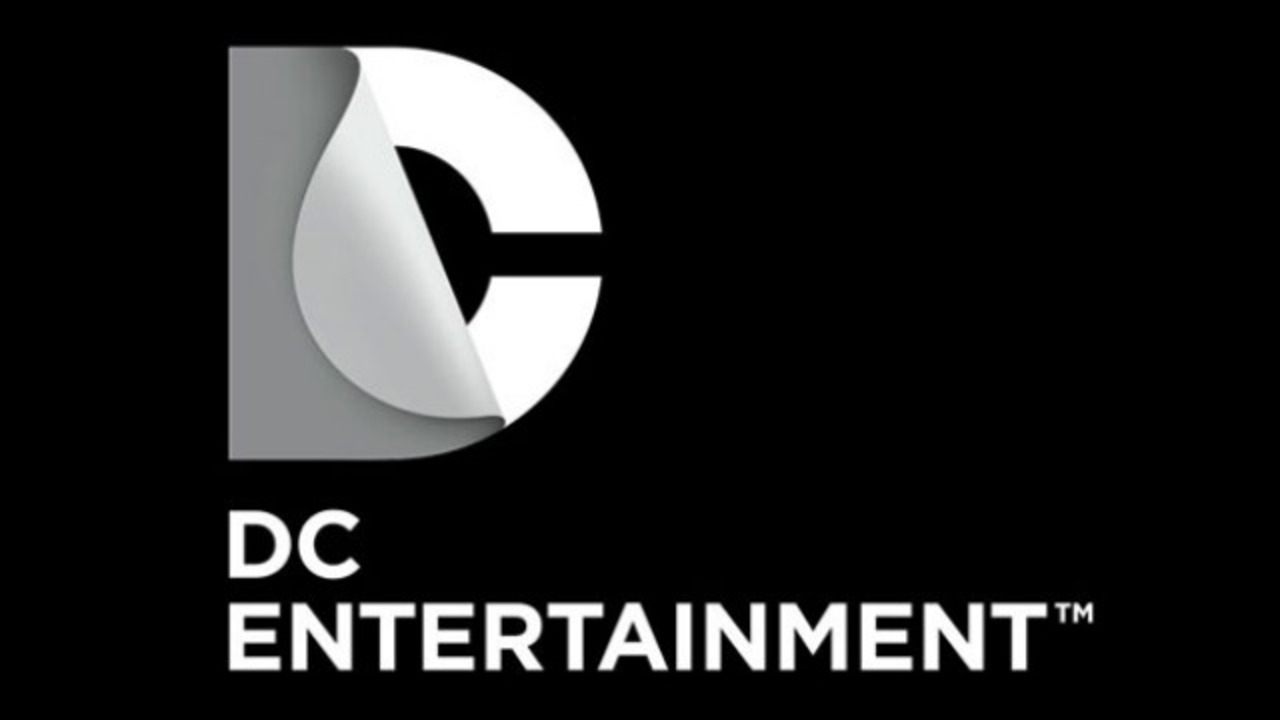
Nrama: This might be too on the nose because your name is DiDio, but this is like that Mafia thing: "Just when I thought I was out! They pull me back in!"
DiDio: [laughs] Yeah, to tell the truth, I have to refrain from saying that myself because it is so hack…but it’s true, I honestly thought that!
But that’s the job. And I never approached the job custodially, which is to say that I was just there to maintain, keep order, keep the trains on time, and keep everything where it was, safe and secure. Quite the opposite. I'm always constantly pushing. Always constantly trying. Always trying new things. Now sometimes that’s to the benefit, and sometimes to the detriment. Sometimes something's working and you start to change it, and you probably shouldn't have. Sometimes you need to shake things up, make things fresh and new because truth be told, we have a lot of the same audience that's been here for decades. They've seen a lot of the things.
They've been familiar with so much of what we've done. Because of that, we have to keep them engaged by constantly challenging them, too. Sometimes you challenge them to the point that they feel we've gotten too far away from it. That's when you have to go backwards a little bit.
For the most part, you've constantly got to refresh it because ultimately, you've got to keep people interested in what you're doing.
Nrama: Not to put too many words in your mouth, but that's got to be difficult because you've got part of an audience that always says, "I want something new and different," when really, what they want is the Green Lantern book that they read when they were nine years old.
DiDio: Right. We used to talk about "the illusion of change." That's what everybody wants, the illusion of change. Ultimately, that's why I think things like Elseworlds and all these alternate reality stories really took hold, because they were able to take risks without impacting the main line.
Everybody felt safe on the main line, because nothing happened and everybody is taking the risk on the edges. Problem there, is that the alternate stuff, your Elseworlds, Dark Knight Returns, Red Son stuff winds up being more interesting than the main line.
One of our main goals and one of my first goals when I first got in was finding a way to tell our best stories in the main line. That’s why I was against Elseworlds at that time. I said, "All the best storytelling is happening in Elseworlds. How do we find a way to tell those best stories on the main line, and elevate the line?"
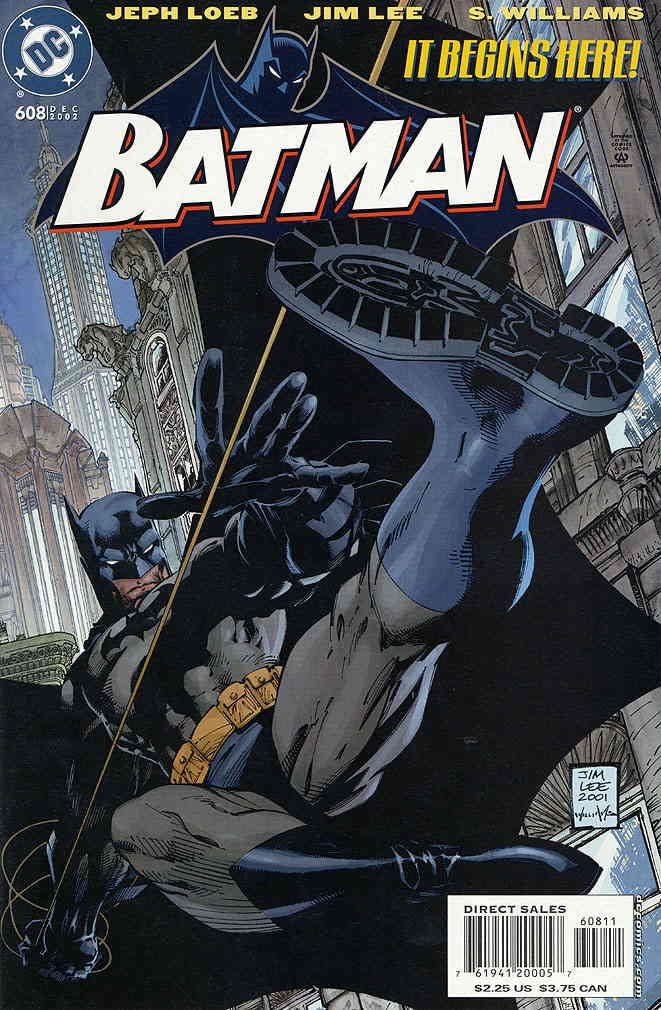
That goes back to Jim Lee. I always go back to Jim Lee with this. When I got there, 'Hush' had already started. 'Hush' was going to be a side project similar to what Jeph Loeb and Tim Sale did on the 'Long Halloween' stuff, prestige format, stand-alone mini-series off to the side that everybody can rally around.
To Jim's credit, Jim goes, "No, I want to be the Batman artist. I want this to be in the main book. I don't want it to be a mini-series, I want to be the Batman guy." To him, it made more of an impact and meant more to DC Comics in general if he was on the main line.
And ultimately, he showed the value in doing that, and by elevating Batman on the main line, he brought prestige to the line itself. Lo and behold, everybody started wanting to do their stories on the main line.
Nrama: I have a colleague in the business who always says, "It's important that the death of Phoenix happened in X-Men #137. It didn't happen in the X-Men Prime Omega one-shot." To this day we remember the issue number.
DiDio: Batman #608, Jim Lee. That’s my number!
[end of part one, check out part two and part three here]
—Similar articles of this ilk are archived on a crummy-looking blog. You can also follow @McLauchlin on Twitter


